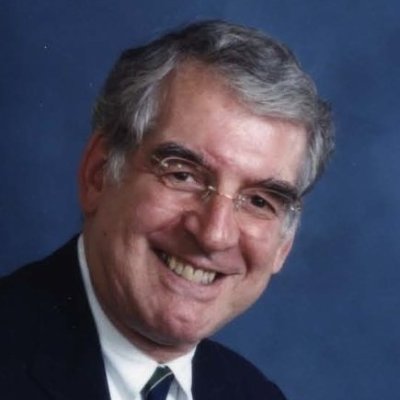 Mission control on earth receives an urgent communication from Mars that an astronaut has fractured his shinbone. Using a handheld scanning device, the crew takes images of his damaged tibia and transmits them to earth. Orthopedic surgeons then use a 3D printer to create an exact replica of the astronaut’s leg from medical imaging files obtained before the voyage. Surgeons on earth use a robot to stabilize the bone with a metal plate on the 3D replica. The data is transmitted back to Mars, where surgical instruments, a personalized plate and screws are 3D printed. Finally, a surgical robot operates on the injured astronaut...
Mission control on earth receives an urgent communication from Mars that an astronaut has fractured his shinbone. Using a handheld scanning device, the crew takes images of his damaged tibia and transmits them to earth. Orthopedic surgeons then use a 3D printer to create an exact replica of the astronaut’s leg from medical imaging files obtained before the voyage. Surgeons on earth use a robot to stabilize the bone with a metal plate on the 3D replica. The data is transmitted back to Mars, where surgical instruments, a personalized plate and screws are 3D printed. Finally, a surgical robot operates on the injured astronaut...
health care delivery
See the following -
3D Printers: A Revolutionary Frontier for Medicine
- Login to post comments
A Global Health Scorecard Finds U.S. Lacking
 Over the last 25 years, China, Ethiopia, the Maldive Islands, Peru, South Korea and Turkey had the greatest improvements in “deaths avoidable through health care at their economic level,” a complex but intriguing new measure of global mortality described last week in the Lancet. By that standard, the United States improved slightly over the same period, 1990 to 2015. But the American ranking is still so low that it’s “an embarrassment, especially considering the U.S. spends $9,000 per person on health care annually,” said the report’s chief author, Dr. Christopher J. L. Murray, director of the University of Washington’s Institute for Health Metrics and Evaluation, created by the Bill and Melinda Gates Foundation.
Over the last 25 years, China, Ethiopia, the Maldive Islands, Peru, South Korea and Turkey had the greatest improvements in “deaths avoidable through health care at their economic level,” a complex but intriguing new measure of global mortality described last week in the Lancet. By that standard, the United States improved slightly over the same period, 1990 to 2015. But the American ranking is still so low that it’s “an embarrassment, especially considering the U.S. spends $9,000 per person on health care annually,” said the report’s chief author, Dr. Christopher J. L. Murray, director of the University of Washington’s Institute for Health Metrics and Evaluation, created by the Bill and Melinda Gates Foundation.
- Login to post comments
Complimentary Webinar to Focus on Consumer Perspective on Health Care Delivery
Epstein Becker Green and EBG Advisors are sponsoring a three-part webinar series focusing on emerging trends in population health. The presentations will offer participants informative and insightful guidance on how population health strategies are transforming the health care paradigm and explore key aspects of emerging as the industry moves towards the management and integrated delivery systems such as accountable care organizations (ACOs).
- Login to post comments
Death By A Thousand Clicks: Leading Boston Doctors Decry Electronic Medical Records
It happens every day, in exam rooms across the country, something that would have been unthinkable 20 years ago: Doctors and nurses turn away from their patients and focus their attention elsewhere — on their computer screens. Read More »
- Login to post comments
How We Made a Health App That Works in Remote Rural Areas without Internet
Over half a century ago, communications guru and public intellectual Marshall McLuhan predicted that electronic interdependence will make the world a global village. But last month, Simon Tisdall of The Guardian called out the international media for creating a hierarchy of suffering by focusing on Hurricane Harvey more than on the devastating floods in South Asia and South East Asia. The reason: distance! The distances that marginalize are not just physical. They manifest in governance gaps in justice, cultural atrophy and social dystopia. Nowhere is the tyranny of distance more manifest than in health care delivery. And the Himalayan state of Uttarakhand has the double burden of a hilly terrain along with metaphorical distances to bridge...
- Login to post comments
Microsoft and Partners Combine the Cloud, AI, Research and Industry Expertise to Focus on Transforming Health Care
 ...Healthcare NExT, a new initiative to dramatically transform health care, will deeply integrate greenfield research and health technology product development, as well as establish a new model at Microsoft for strategic health industry partnerships. Through these collaborations between health care partners and Microsoft’s AI and Research organization, our goal is to enable a new wave of innovation and impact using Microsoft’s deep AI expertise and global-scale cloud.This initiative includes investments in resources for our partners to capture new opportunities to apply AI to healthcare, such as the Microsoft AI in Health Partner Alliance, an expanding group of partners focused on advancing health technology. Alliance members will receive unique training and access to Microsoft technologies, engineering expertise and data sets. Read More »
...Healthcare NExT, a new initiative to dramatically transform health care, will deeply integrate greenfield research and health technology product development, as well as establish a new model at Microsoft for strategic health industry partnerships. Through these collaborations between health care partners and Microsoft’s AI and Research organization, our goal is to enable a new wave of innovation and impact using Microsoft’s deep AI expertise and global-scale cloud.This initiative includes investments in resources for our partners to capture new opportunities to apply AI to healthcare, such as the Microsoft AI in Health Partner Alliance, an expanding group of partners focused on advancing health technology. Alliance members will receive unique training and access to Microsoft technologies, engineering expertise and data sets. Read More »
- Login to post comments
OpenMRS Holds World Wide Summit in Singapore
 OpenMRS held its first annual World Wide Summit for interested participants and contributors (including developers and implementers) in Singapore from December 8-14, 2015. The World Wide Summit meeting is designed to create a collaborative global space to share and discuss work and ideas about OpenMRS, showcase innovative development that has occurred over the last year, and support an OpenMRS Hackathon. This first annual summit was planned to build, support and grow the OpenMRS community as well as the OpenMRS software suite. The conference was attended by over 100 participants from 6 continents. There were more than 50 sessions by close to 30 speakers.
OpenMRS held its first annual World Wide Summit for interested participants and contributors (including developers and implementers) in Singapore from December 8-14, 2015. The World Wide Summit meeting is designed to create a collaborative global space to share and discuss work and ideas about OpenMRS, showcase innovative development that has occurred over the last year, and support an OpenMRS Hackathon. This first annual summit was planned to build, support and grow the OpenMRS community as well as the OpenMRS software suite. The conference was attended by over 100 participants from 6 continents. There were more than 50 sessions by close to 30 speakers.
The Politics of the EHR: Why we’re not where we want to be and what we need to do to get there
 By now, it seems abundantly clear that the vast potential offered by universal adoption of electronic health records (EHR) has not been achieved. Indeed, the fulfillment of that potential seems a long way off. Unsolved problems with interoperability, usability, safety, and security, to name a few, remain, and continue to pose barriers to universal adoption. There is ample evidence in the medical literature, of the unsolved problems of the EHR. Indeed, two recent reports that offer (probably inadequate) solutions highlight the difficulties that exist with the EHR. The proliferation of these problems has only increased with the increase in adoption of the EHR by physicians and institutions. The Texas Medical Association has asked the (at the time) ONC, Farhad Mostashari, MD, to establish a health IT patient safety czar.1 Read More »
By now, it seems abundantly clear that the vast potential offered by universal adoption of electronic health records (EHR) has not been achieved. Indeed, the fulfillment of that potential seems a long way off. Unsolved problems with interoperability, usability, safety, and security, to name a few, remain, and continue to pose barriers to universal adoption. There is ample evidence in the medical literature, of the unsolved problems of the EHR. Indeed, two recent reports that offer (probably inadequate) solutions highlight the difficulties that exist with the EHR. The proliferation of these problems has only increased with the increase in adoption of the EHR by physicians and institutions. The Texas Medical Association has asked the (at the time) ONC, Farhad Mostashari, MD, to establish a health IT patient safety czar.1 Read More »
- Login to post comments
VA using big data to improve health care delivery
 Using health data to understand disease and wellness as well as the best treatment and prevention options forpatients, is critical for improving care. That’s why VA is partnering with the National Cancer Institute’s Center for Strategic Scientific Initiatives to use “big data” to advance favorable outcomes in patient care. “Big data” in health care is a term used to describe complex and very large data sets that have evolved since the inception of electronic health records.
Using health data to understand disease and wellness as well as the best treatment and prevention options forpatients, is critical for improving care. That’s why VA is partnering with the National Cancer Institute’s Center for Strategic Scientific Initiatives to use “big data” to advance favorable outcomes in patient care. “Big data” in health care is a term used to describe complex and very large data sets that have evolved since the inception of electronic health records.
- Login to post comments